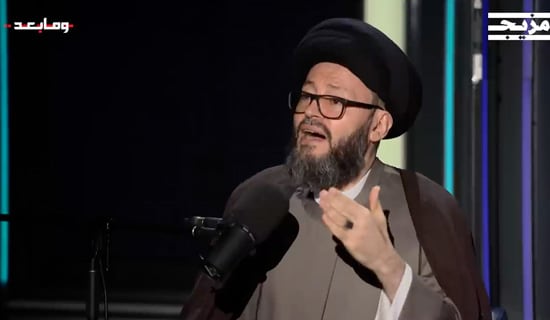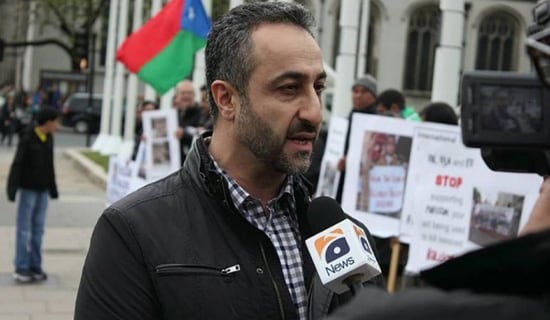A July 15, 2023 article in the Lebanese daily Nida' Al-Watan, known for its opposition to Hizbullah, states that this organization is largely responsible for the severe economic crisis in Lebanon and is also benefiting from this crisis more than anyone else. Hizbullah, it says, participated in causing the economic situation in several ways: by instigating security incidents and violent clashes using its weapons, thus driving away foreign tourists and investments; by escalating its rhetoric against the Gulf states and smuggling drugs into them, thus ruining Lebanon's relations with these countries, which were a major source of investments and foreign capital; and also by using its control of several government ministries to spread corruption. Although Hizbullah did not create Lebanon's long-standing problem of widespread corruption, but only jumped on this bandwagon, says the article, it is the element that has profited the most from the economic chaos in the country.

Protests over the economic crisis in Lebanon (Image: Sautbeirut.com, August 25, 2021)
The following are translated excerpts from the article:[1]
"The economic, financial and monetary crises in Lebanon have not stood in the way of [Lebanon's] powerful elements in general and of Hizbullah in particular. On the contrary, for these people, these consecutive crises in Lebanon were an opportunity, and they seized this opportunity and used it to benefit from the dire situation and increase their profits, their revenue and the privileges granted to their supporters… This crisis was particularly profitable for Hizbullah, which enjoyed the largest piece of the cake that was on the table.
"Hizbullah has profited from the crisis in several ways. After the assassination of the martyred prime minister Rafiq Al-Hariri in 2005, Hizbullah decided, for the first time, to become part of the executive branch and be represented by several [government] ministers. All the [previous] Lebanese governments, from the pre-civil-war period until after the assassination of prime minister Al-Hariri, had covered up corruption and agreed on dividing [the profits between their members]… Immediately upon becoming part of the government, Hizbullah received control of several ministries and joined this game of Lebanese corruption and division [of profits]. The ministries it received included those of health and of energy, which were not clean of wastefulness and corruption [to begin with]…
"As for security, the May 7, 2008 events in Beirut, Black Tuesday [2] and other incidents all heralded the [detrimental] effect on Lebanon's economy, in terms of investments, incoming tourism, etc. What is certain is that the crisis grew worse in 2011, after the outbreak of the war in Syria and as Hizbullah severely escalated it rhetoric against the Gulf states, which became bitter and harsh. This stopped the influx of tourism revenues from the Gulf, as well as the foreign investments, most of which were made by these countries, which are also the main [market] for Lebanese exports.
"In addition and in the same context, Lebanon suffered the pressure of the U.S. sanctions on Hizbullah and the banning of Hizbullah elements from access to the global banking system. This naturally affected the credibility of the Lebanese banks, which were sorely hit… Despite all the directives issued by the governor of Lebanon's [central] bank, requiring the banks to close all accounts of Hizbullah members and banning the handling [of these accounts], some of these people continued to enjoy [access to] Lebanon's banking system, in various ways – [a situation] that the U.S. administration had long warned about. The banks' main branches and managements are committed to the directives of Lebanon's [central] bank, but many bank branches are not careful to follow them to the letter. Thus, some people who belong to Hizbullah or are associated with it continued to enjoy [the services] of these banks…
"As for the stage after the [October 17, 2019] revolution,[3] it should be noted that all the central pillars of the government profited from the crisis in some way, but the influential Hizbullah benefited much more than others, in certain ways. When the Lebanese pound started to fall against the dollar – what is known as a rise in the exchange rate – the monitory system was hit hard and moneychangers became noticeably influential, especially in the southern Dahia and the Chtaura area, which are Hizbullah strongholds. This led to the placing of several Hizbullah moneychangers on the sanctions list. It should be noted that the salaries of Hizbullah's employees and full-time workers was paid in dollars at the time, which contributed to the rise of the dollar against the pound…
"Another way Hizbullah benefitted from the crisis was by means of the petroleum products subsidy, which caused account holders [in Lebanese banks] to lose billions of dollars. The other elements in power also profited from this, by smuggling [fuel] through the illegal border crossings and even through the legal ones, and through the [sea] ports, like the one in Beirut, and the airport…
"Hizbullah [also] exploited the shortage of subsidized medicines in the Lebanese market, and opened the door to the import of Iranian and Syrian medicines to Lebanon. [It did this by] taking advantage of the fact that it controlled the health ministry in some of the governments formed before and after the crisis. It permitted what it referred to as the 'vital' import of medicines, so as to flood the Lebanese market with medicines and pharmaceuticals as it pleased, without health ministry oversight and without subjecting them to any quality checks before permitting their introduction into the Lebanese pharmaceuticals market.
"[Another] issue that caused a severe crisis for Lebanon was that of the captagon [drug], which was smuggled from the Beirut port to the neighboring countries, causing the Gulf states to ban the import of Lebanese goods and to ban Gulf citizens from visiting Lebanon due to the political situation.[4] The ban on Lebanese export to the Gulf naturally deepened Lebanon's trade deficit by creating a shortage of dollars flowing into the country.
"Given all of the above, it can be said that Hizbullah has profited considerably from the crisis through a policy of subsidies, smuggling and by other means, and that this organization is an inherent part of the system that tightened its grip over the country and benefitted from the corruption all these decades. We have heard a great deal about the intention to file charges of corruption, but in practice no charges were ever filed!..."
[1] Nida' Al-Watan (Lebanon), July 15, 2023.
[2] On May 7, 2008 Hizbullah gunmen took over parts of the capital in violent riots, in response to a government decision to dismantle Hizbullah's private telecommunications network
and to fire the head of security at Beirut international airport, who was affiliated with Hizbullah. The next day, known as "Black Tuesday," the armed conflicts between Hizbullah and its opponents spread to other parts of Beirut and beyond.
[3] The reference is to the wave of mass protests that broke out on that date against government corruption and the economic crisis in Lebanon, and in response to the government's failure to handle this crisis. See MEMRI reports: Special Dispatch No. 8332 - Lebanese Politicians, Journalists, Before The Outbreak Of The Current Protest-Wave: It Is Hizbullah That Caused The Economic Crisis In The Country – October 25, 2019; Inquiry & Analysis No. 1492 - Lebanese Protests Place Hizbullah In A Bind – Part I: Hizbullah's Hostility To The Protests And The Reasons Behind It – December 3, 2019.
[4] See MEMRI Inquiry & Analysis Series No. 1573 - Saudi And Lebanese Accusations: Hizbullah Is Operating A Network For Smuggling Drugs To Saudi Arabia And The Region; It Has Turned Lebanon Into A Base For Exporting Drugs And Terrorism – April 28, 2021.




